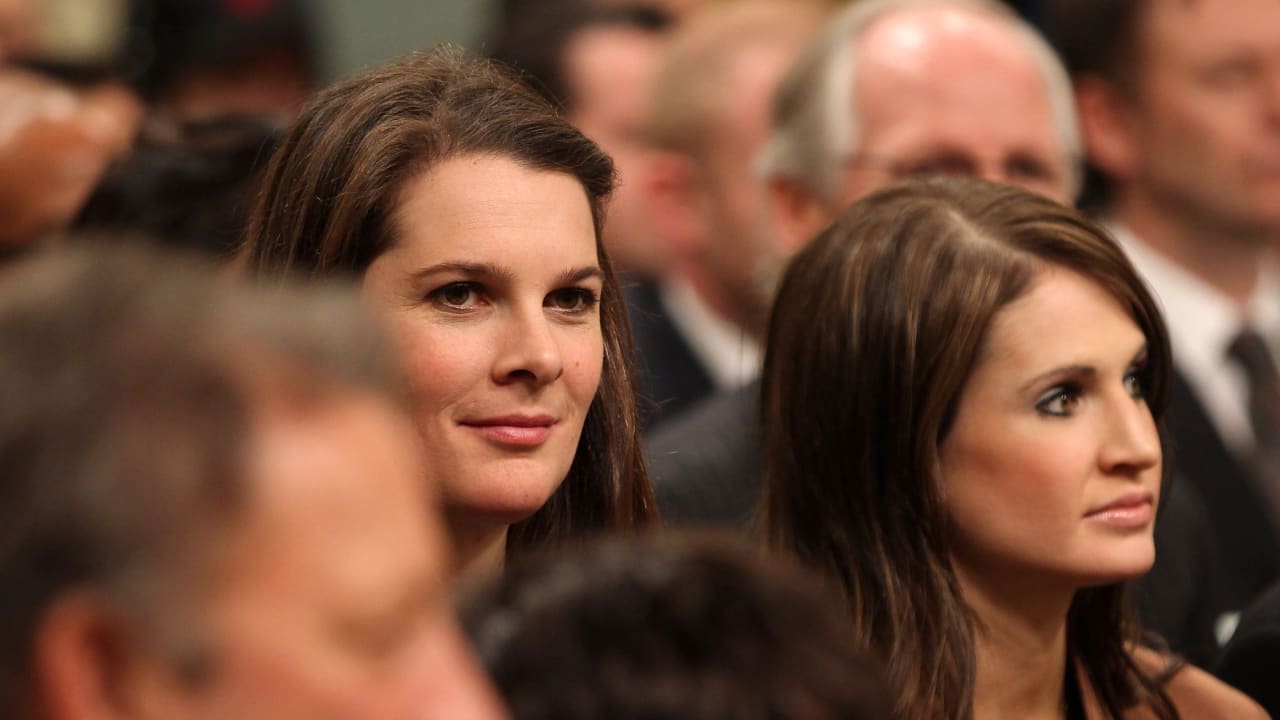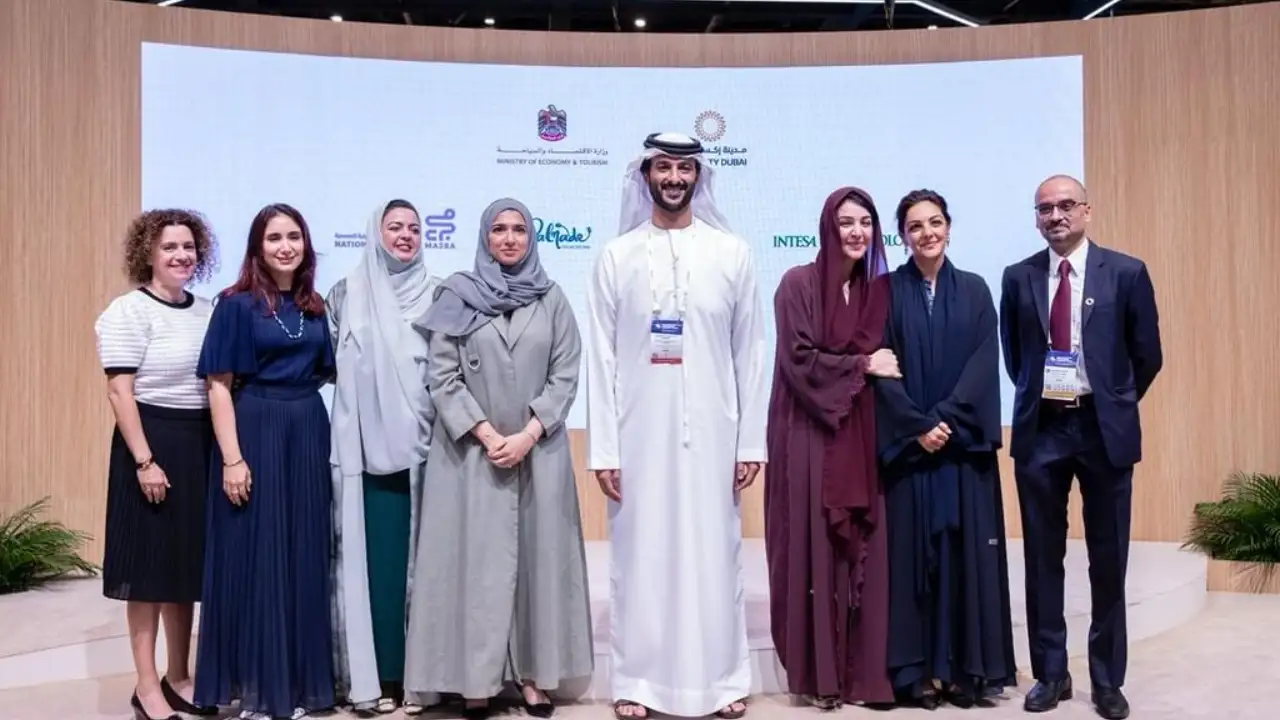Copyright NHL.com

The 2025 Hockey Hall of Fame induction is Nov. 10. This year's class includes Jennifer Botterill, Zdeno Chara, Brianna Decker, Duncan Keith, Alexander Mogilny and Joe Thornton in the Player category and Jack Parker and Daniele Sauvageau in the Builder category. Here, NHL.com columnist Nicholas J. Cotsonika profiles Botterill. When Jennifer Botterill gives motivational keynote speeches, one of her favorite stories is about a lunch she had with her father when she was 15. They went to a place near their home in Winnipeg, and her dad asked about her ultimate dream. She had always wanted to go the Olympics, but she didn't know which sport she wanted to pursue. Now it was 1995. She had been playing organized hockey for three years, and in Nagano in 1998, the Olympics were going to include women's hockey for the first time. "I think my comment was, 'But I don't know if it's possible,'" she said. "And then my dad looked across the table, and that's when he said, 'Well, why not? Why not you? If someone else can be there on the national team representing Canada on the Olympic stage, then why can't it be you?'" Botterill's dream came true and then some. With an athletic bloodline and a strong work ethic, she developed into a skilled, cerebral two-way center and calm, kind leader. She both benefitted from and contributed to the rise of women's hockey, earning her induction into the Hockey Hall of Fame in Toronto on Monday. She played for Canada in the Olympics four times, winning three gold medals and one silver, and in the IIHF World Championship eight times, winning five golds, three silvers and two most valuable player awards. She had 174 points (65 goals, 109 assists) in 184 games internationally, fifth among women in Team Canada history at the time of her retirement March 14, 2011. Explore NHL.com's Coverage of the Olympic Winter Games Milano Cortina 2026 At Harvard from 1998-2001 and in 2002-03, she had 340 points (157 goals, 183 assists) in 113 games. That would stand today as the NCAA record for men and women, but the NCAA didn't start sanctioning women's hockey until 2000-01. She still holds multiple college records and is the only two-time winner of the Patty Kazmaier Memorial Award as the top women's NCAA hockey player. On top of that, she had 150 points (67 goals, 83 assists) in 86 games in the National Women's Hockey League from 2003-05 and in 2006-07, and she had 155 points (61 goals, 94 assists) in 78 games in the Canadian Women's Hockey League from 2007-09 and in 2010-11. "She wanted to be the best," said Canada star Marie-Philip Poulin, who grew up watching Botterill and played with her at the 2010 Vancouver Olympics. "She wanted to push everybody around her to be better. But what stuck with me was the kindhearted [attitude] she had. I was lucky enough to play on her line in 2010, and she was so kind. She wanted to help me, and that's something I'll forever be thankful for." * * * * Botterill came from an accomplished athletic family. Her mother, Doreen McCannell, competed for Canada in speed skating at the 1964 and 1968 Olympics, and her aunt, Donna McCannell, competed for Canada in speed skating at the 1972 Winter Games. Her father, Cal Botterill, played hockey for the Canadian national team from 1967-69 and worked as a sports psychologist. Among his clients were NHL teams and Olympic athletes. Her brother, Jason Botterill, became the first Canadian to win three gold medals at the IIHF World Junior Championship. He played in the NHL, became an NHL executive and is now general manager of the Seattle Kraken. "I don't feel like it was extra pressure," Jennifer said. "It was just a very supportive environment. Yes, we were fortunate that our parents were very athletic and did extremely well, but I just think mentally and emotionally they provided an amazing environment for our growth and development." Jennifer remembered going to her grandmother's house at the holidays and seeing pictures on the walls of Doreen in her Team Canada gear. She remembered watching Jason play for Team Canada with the family name on the back of his jersey. Jason remembered the family attending the Olympics in 1984 in Los Angeles, when Cal worked with Canada's men's basketball team, and in 1988 in Calgary, when he worked with Canada's men's hockey team. Doreen, an elementary school teacher, and Cal, a university professor, never told their kids they had to do this or that. They showed them the options available to them, and what it would take. "We learned at a young age how hard these men and women worked to get to where they were," Jason said. "Instead of just seeing them on TV and seeing this amazing athletic talent, our parents were able to teach to us how hard my mom had to work to get to the Olympics. Our dad would tell stories about these players that he worked with at the National Hockey League, what they were doing behind the scenes when the cameras were off. I think that was always very beneficial." Jennifer was a natural athlete who played several sports growing up, including ringette, representing Manitoba at the 1995 Canada Winter Games. But few girls played hockey when she was young. She didn't play organized hockey until she was 13, about the time the International Olympic Committee voted to approve women's hockey as an event. She quickly fell in love with it. Her parents could see a little smile through her cage. "It didn't matter what sport, whether it was track, basketball, soccer, volleyball, badminton, ringette, hockey," Jason said. "Whatever sport she played, she seemed to excel in. I think she really became an elite athlete first and then found her path to becoming a great hockey player." Ringette gave Jennifer a foundation of skating, but she had to work on her puck skills. She said she and Jason would walk to the Wildwood Park Community Centre in Winnipeg with skates, sticks and a bucket of pucks, and she would spend extra time on the outdoor rink. Jason said they had a shooting area in the basement too. "Unfortunately, I had to go in net sometimes, and my sister kept on …," Jason said, his voice trailing off, laughing like a big brother. "It wasn't a very big area, and shots were pretty close. She hummed quite a few at me, for sure. I certainly saw the improvement in her shot firsthand." After her dad took her to lunch and asked about her ultimate dream, she wasn't convinced immediately it was possible. But she started to think about it over the next few weeks. Her ringette coach at the Canada Winter Games had used a theme: never have to say, "I wish I would have." In other words, no regrets. "From there, I decided that was something I wanted to pursue," she said. "It was a really important conversation in my life that shifted my attitude and my perspective." Jennifer moved away from home, spending Grade 12 at the National Sport School in Calgary, and made Canada's first women's Olympic hockey team at 18. She was the youngest player on the roster. The moral of the story? "I think most importantly it's encouraging to believe in yourself, right?" she said. "To have that belief, and then to make sure you're setting ambitious goals for yourself and striving for excellence." * * * * Canada won silver in Nagano in 1998, losing to the United States 3-1 in the final, then grabbed gold in Salt Lake in 2002, upsetting the U.S. 3-2 in the final. The rivalry was bitter. Botterill returned to Harvard for her senior year in 2002-03 and served as a captain for the second time. She ended up on a line with Julie Chu, a freshman who had played for the United States in Salt Lake. There was no animosity on either side. "Honestly, she's one of my favorite teammates I've had an opportunity to play with," Chu said. "I was really lucky that I got a chance to play alongside her, to be her linemate and learn from her daily." Botterill had 112 points (47 goals, 65 assists) in 32 games that season -- including 10 points (three goals, seven assists) in one game, a 17-2 win at Boston College on Jan. 28, 2003 -- and won the Patty Kazmaier for the second time. Only one player has had more points in a season in NCAA women's hockey: Natalie Darwitz, who had 114 points (42 goals, 72 assists) in 40 games for Minnesota in 2004-05. Only two players have had more goals: Nicole Corriero, who had 59 for Harvard in 2004-05, and Kendall Coyne, who had 50 for Northeastern in 2015-16. Only one player has had more assists: Darwitz in 2004-05. Botterill still is tied with Corriero for the NCAA record for most points in a game (10). She still has NCAA records for points per game in a season (3.50 in 2002-03) and a career (3.07 in 2000-01 and 2002-03), goals per game in a career (1.44), assists in a game (seven, twice), and assists per game in a season (2.03 in 2002-03) and a career (1.63). "She was a 200-foot player that had the ability to play great defensive hockey, but she had a really great mind and ability to generate offense as well," said Chu, who won the Patty Kazmaier herself in 2006-07 as part of her stellar career. "She made everything look so effortless in the way that she skated and she moved. "She had an ability to support the puck all over the ice in great way to put herself in position to get the puck, and she was such a great and talented player, you wanted her to have the puck as often as possible." Canada won gold in Torino in 2006, defeating Sweden 4-1 in the final, and again in Vancouver in 2010, defeating the United States 2-0. Botterill assisted on what turned out to be the golden goal in Vancouver. She carried the puck up the left wing into the corner, then threaded a pass back into the left circle. In a blur, Poulin ripped a one-timer into the net. "I'll forever remember that play," Poulin said. "What a pass. I still to this day practice that shot, because that was something quite special." That was the last point of Botterill's international career. "If I had to pick a favorite play, it would be that one," Botterill said. "I think for me, it was just as fulfilling, or even more rewarding, to know that I made the right decision in that moment, perhaps the biggest moment of my athletic career, an Olympic gold-medal game on home soil." Botterill helped inspire the current generation of players to ask themselves, "Why not you?" Canada forward Sarah Fillier remembered attending a camp Botterill ran in minor hockey. "Getting the chance to be on the ice with her as a young girl really sparked my dream of playing for Team Canada and to win an Olympic gold medal," said Fillier, who won gold at the 2022 Beijing Olympics. "… She was incredible to look up to."



